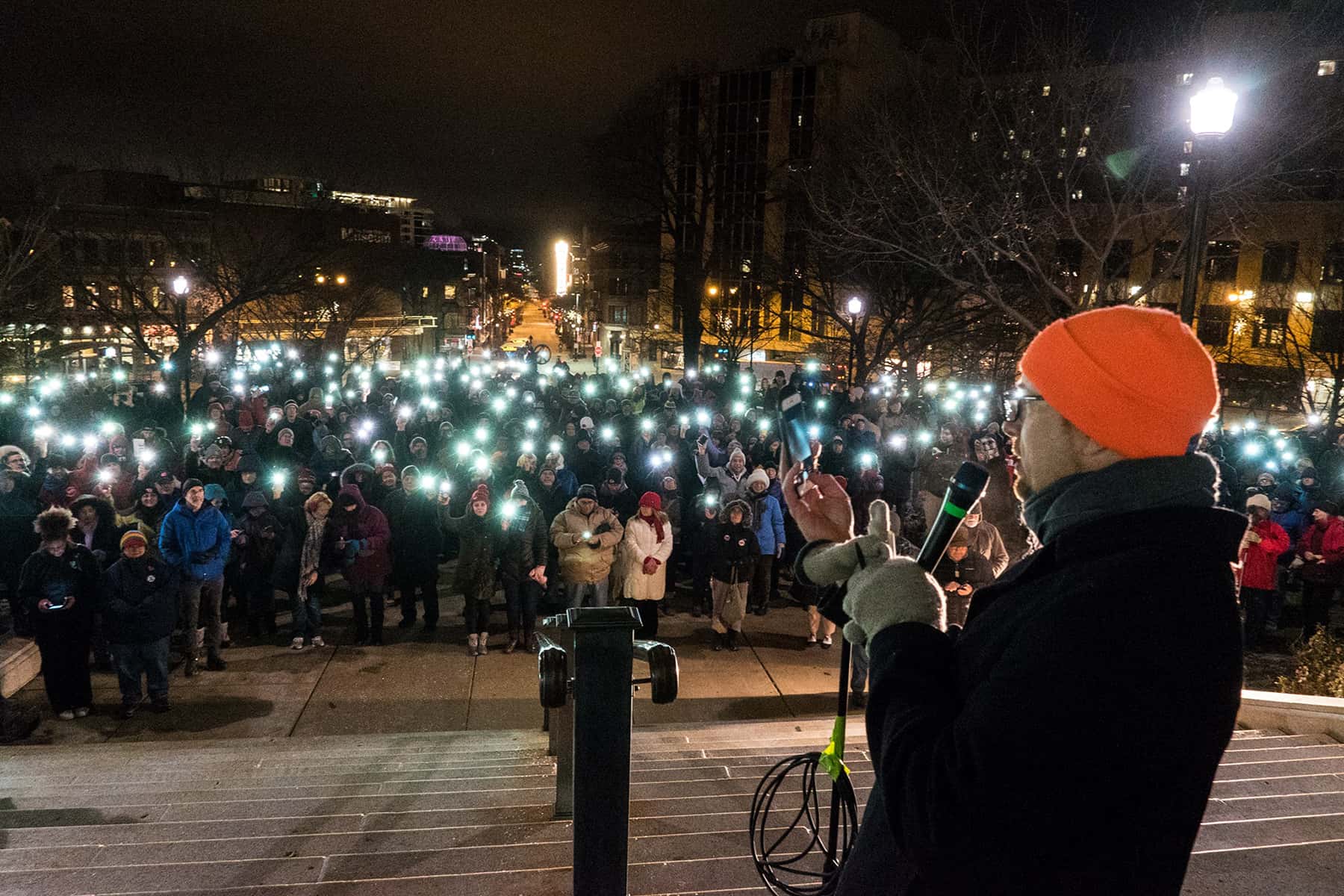
“This isn’t a bill. This is a coup.” – Randy Bryce (a.k.a. the “Iron Stache”)
The rushed enactment of bills being considered in the Wisconsin Legislature on Tuesday would leave a dark and long-lasting stain on our state’s reputation for being a home of good government, clean politics and thoughtful policymaking.
Enacting the proposed bills would be the first time in Wisconsin’s 160-year history that a lame duck session was ever used to sharply reduce the power of a newly-elected Governor and a newly elected Attorney General. And it would make Wisconsin one of just a small number of states in the U.S. to subvert the fair and peaceful transition of power after an election by sharply curtailing the authority of the incoming officeholders.
The way these bills shift power from the executive branch of government to the legislative branch is almost a 180-degree shift from what Republican lawmakers did 8 years ago, soon after Governor Walker took office. For example, they quickly passed a bill in 2011 that delegated sweeping and unprecedented authority to the Department of Health Services (DHS) to make sharp changes in Medicaid policy, even if those changes conflicted with state statutes!
Some Republican legislators claim that the bills now being considered merely acknowledge now what many Democrats argued in 2011 – that the legislature was ceding far too much power to the Governor and state agencies. However, that’s not what’s going on; the alarming delegation of power to DHS made in 2011 expired at the end of Walker’s first term.
Now, instead of striking a reasonable balance of power between legislators and the executive branch, the Extraordinary Session bills will hamstring DHS in many ways. Two dozen health provider organizations sent a letter to legislators yesterday opposing two of the bills and pointing out that they “could have unintended consequences that will impact health care delivery in Wisconsin.”
In short, the state that went further than any other in concentrating Medicaid policymaking authority in the executive branch when there was a Republican governor will soon be the state that goes further than almost any other in tying the hands of its Medicaid agency and concentrating authority in the legislature, now that the incoming governor is a Democrat.
If anyone has any doubts about the hypocrisy of this complete about-face in Republicans’ view regarding the appropriate balance between the authority of the legislature and the executive branch, they should look at the following facts:
- No Republican legislators said during the campaign that they thought it was time to reduce the power of either the governor or attorney general.
- None of the five bills was submitted for drafting until after Democrats won the elections for governor and attorney general.
- The bills are being rushed through at breakneck speed, in an attempt to avoid careful scrutiny and debate.
Unfortunately, the hypocritical shift in the balance of power is not the only thing wrong with the 200+ pages of legislation being railroaded through the legislature just a couple of days after it was introduced. The other problems are far too numerous to list here, but a few of the egregious examples include the following:
- Sharply reducing the time period for casting absentee ballots, which would especially hurt seniors, low-income Wisconsinites and people of color who have difficulty getting to the polls or don’t have the time or ability to stand in long lines on Election Day.
- Impeding the next Attorney General’s authority to drop out of the Republican-led lawsuit challenging the validity of the parts of the Affordable Care Act that protect people with pre-existing medical conditions.
- Changing the date of the state’s next Supreme Court election – at a cost of well over $7 million for the state and local governments – in order to improve the chances that the conservative candidate is reelected. (That bill was not approved by the Finance Committee.)
- Locking into place harmful and administratively expensive changes to BadgerCare that will cause thousands of Wisconsinites to lose their insurance coverage.
For the vast majority of the 42 years that I have lived in Wisconsin, I have been proud to call this state my home because it has generally been known as an example of clean government. That reputation has been tarnished somewhat in recent years, but we are now on the brink of being known in a very different way – as the home of a brazen power grab that one would only expect from a despotic government, not from a democracy.
December 4th could be the date when Democrats and Republicans alike find themselves living in a state that interferes with the fair transfer of power after an election.
Jon Peacock
Joe Brusky
Originally published on wisconsinbudgetproject.org
Help support the Wisconsin Budget Project with a donation. The organization is engaged in analysis and education on state budget and tax issues, particularly those relating to low-income families. It seeks to broaden the debate on budget and tax policy through public education and by encouraging civic engagement on these issues.















